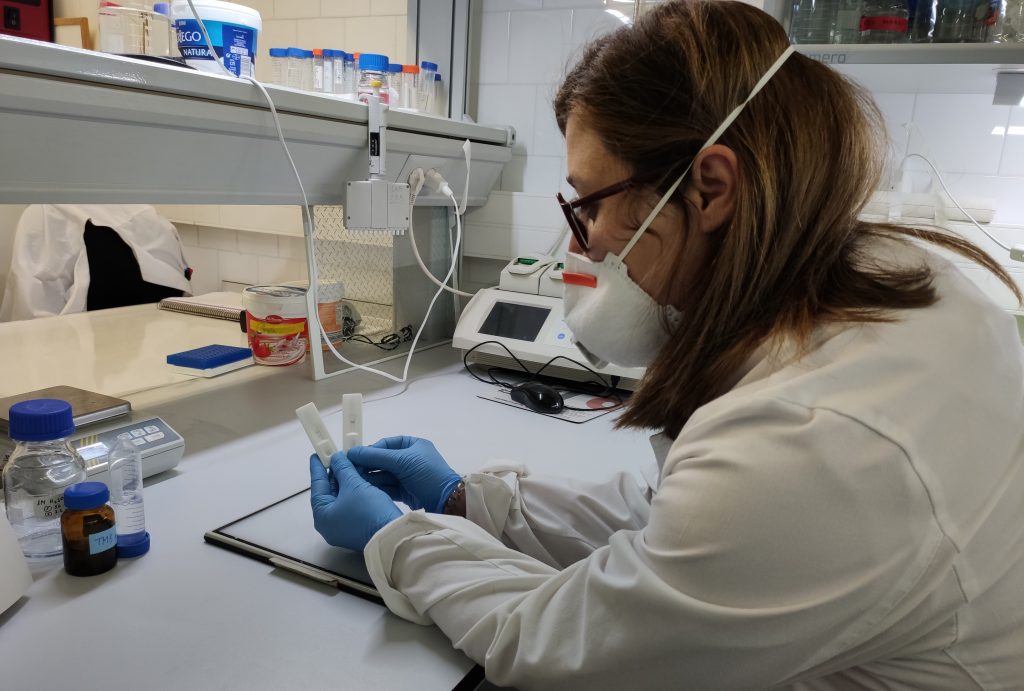28/04/2020
Researchers at the URV are working to develop a device to quickly detect COVID-19
The aim is to develop a serological test within 3 months that takes only 15 minutes to differentiate between patients that have the virus and those who have already has it

The aim is to develop a serological test within 3 months that takes only 15 minutes to differentiate between patients that have the virus and those who have already has it
The research group Interfibio of the Department of Chemical Engineering of the URV, has been working for weeks on a device that can quickly detect COVID-19. The project, headed by Ciara O’Sullivan, aims to develop in three months a cheap, quick and easy-to-use serological test for detecting the disease, which can also identify patents who have the disease and those who have recovered from it. The test will consist of a device with a single lateral flux that requires only a drop of blood taken from the fingertip (like a sugar-level test or diabetic people) and it will give a result in less than 15 minutes.
The new device is being developed by Ciara O’Sullivan, Míriam Jauset, Vasoula Skouridou and Ivan Magriñà and it will detect the antibodies IgA, IgM and IgG, which are produced by the immune system of infected individuals to combat the infection. The antibodies IgA and IgM are the first to be produced, shortly after infection, while the IgG antibodies appear later and are associated with long-term immunity and immunological memory. The presence of these antibodies in the blood of a patient can provide information about current and past infections and their detection will effectively compliment efforts to contain the disease and determine its true extent, given the large quantity of asymptomatic patients with COVID-19. Furthermore, the test will eliminate the possibility of false negatives.
The device is quicker, cheaper and easier to use than those that have been used up to now, the most common of which is reverse transcription polymerase chain reaction (RT-PCR) in real time using specific primers of the virus. However, these RT-PCR molecular tests have certain limitations, such as the long time they take to provide a result and the fact that people need to be trained to carry them out.
In contrast, the device being developed by the URV research group will take less than 15 minutes to give a result, will cost approximately one euro and can be administered quickly and easily by anybody because it requires no additional equipment or laboratory facilities.
Once the prototype has been developed, it will be tested in various hospitals around Spain, including the Joan XXIII Hospital in Tarragona and the Verge de la Cinta Hospital in Tortosa; the Health Research Institute at the Álvaro Cunqueiro Galicia Sur Hospital, The Clinical University Hospital of Valencia and the OSI Donostialea Health Research Institute. Once the test’s validity has been confirmed, it will be produced on an industrial scale.
The development of this diagnostic device is being supported by the Carlos III Health Institute through the COVID-19 fund to promote projects that improve understanding and management of the virus in the short term.
More news about: Coronavirus, INTERFIBIO
